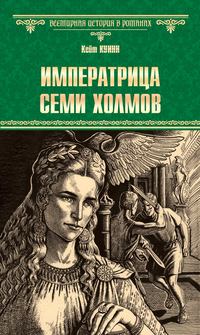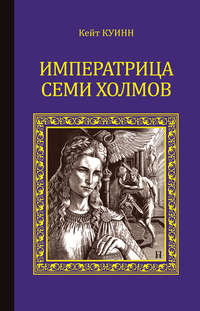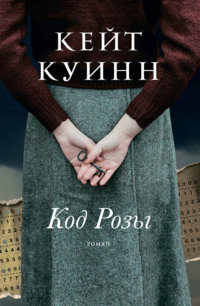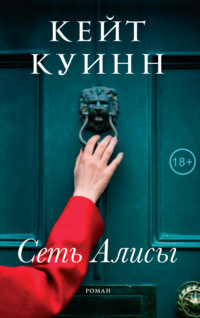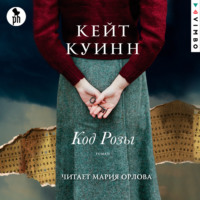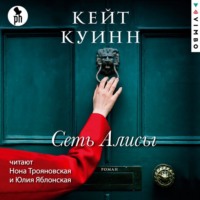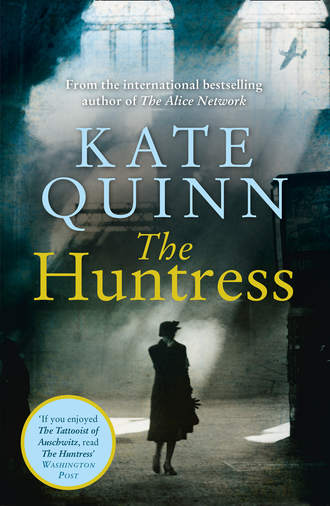
Полная версия
The Huntress
“Will you be at ease with it if you have to let go of die Jägerin?” Tony asked. “What if the woman who killed your brother and nearly killed your wife lies on the other side of beating the shit out of a witness?”
Ian thought in stark honesty, I don’t know.
He breathed away the instinctive flare of defensive anger, saw an approaching plume of smoke, and rose. “Train’s here.” It was a long, silent ride back to Vienna.
“YOU ARE EVICTED,” Frau Hummel greeted them at the door, crimson with rage. “You and that barbarian Hure—”
She continued to shout, but Ian pushed past and threw open the door to the center. “Bloody hell …”
In one day, the office had gone from an orderly oasis to an utter disaster. Files were scattered everywhere in heaps, paper drifted like snow across the desk, and empty cups sat on every surface. The air smelled like scalded tea, and the jam pot was attracting flies. The author of all this anarchy sat in Ian’s chair, bare feet swinging, blond head bent over a file she was leafing with jamsticky fingers.
“No more biscuits,” Nina greeted them without looking up. “Or tea.”
Ian gave his desecrated office another long stare. Tony surveyed the chaos too, eyes dancing. “Nina,” Ian said eventually, waiting until she looked up. “Why are we being evicted, and why are you wearing one of my shirts?”
“Mine is hanging to dry.” She pushed Ian’s cuff up her arm, fanning the file in her hand. “This case, the Schleicher mudak—my reading isn’t so good, but it looks like the wife is lying. Why didn’t you threaten to cut her nose off?”
“Is Frau Hummel really evicting us?”
“She threatened.” Nina tossed the file down, picked up another. “I tell her I cut her nose off.”
“Wonderful.” Ian suppressed the urge to throttle his wife where she sat. “Nina, you were only supposed to take care of the post, answer the telephone—”
“Is boring.” Nina picked up her tea, looked around for a spoon, and stirred it with the end of Ian’s fountain pen instead. “I review your old chases, see how you work. Useful, for when we go after die Jägerin.”
“Useful?” He folded his arms across his chest. “You unleashed chaos in my office, you little savage.”
“Is my office too. Until target’s bombed flat, what’s mine is yours, and what’s yours is mine.” She gulped some tea, then rose and stretched, the hem of Ian’s shirt falling nearly to her knees. “What do you find in Altaussee? Where do we go next?”
“Salzburg.” Ian glared. “Give me my shirt back.”
“Nu, ladno.” She shrugged, began unbuttoning.
“Bloody hell,” he growled again and yanked open the door to the tiny washroom. It smelled of peroxide; evidently she’d used the sink to touch up her hair. An improvised laundry line had been hung with a rinsed-out blouse and a set of silky blue knickers. “Your blouse is dry,” Ian said, ignoring the underwear.
“You’re easy to shock, luchik. Is very funny.” She patted his arm, amused, and closed the washroom door. Ian turned to find Tony chortling.
“She collectivized the office,” he said. “Definitely a Russki.”
Ian bit back a snort. The urge to throttle his wife was now warring with the urge to laugh. “Well, help me clear up my Soviet bride’s mess.”
“She was putting files away as she read. It’s not that bad.”
“Without order lies madness.” Ian believed that in his bones.
With order came peace and law; without it lay war and blood. He’d seen enough of both to know it was true.
He locked that thought away as Tony sat back on his heels and asked, “When do we head for Salzburg, and are we taking your Soviet bride?”
“I don’t know.” Ian paused. “What does luchik mean?”
Tony grinned. “‘Little ray of sunshine.’”
“Does it bother you that she’s a Soviet?” Ian knew how suspicious the Yanks were of the Reds these days. Five short years from the end of the war, and benevolent ally Uncle Joe had become everyone’s enemy, but the Americans seemed more paranoid about the Communist Menace than anyone.
“She hasn’t gone around quoting Das Kapital. She hasn’t done anything except desecrate your tea and lie about her origins, and there are plenty of reasons for people to do the latter.” Tony slid a cabinet drawer shut. “We listen to lies day in and day out, not just from war criminals. Refugees and good guys lie too. About whether they’re Jewish or gentile, about their war record or their imprisonment record, about their health and their age and how they got their papers. Good reasons or bad, everybody lies.”
“Maybe.” Ian rose. “It’s time I talked to Nina. Will you smooth Frau Hummel over, make sure we aren’t being evicted?”
“Some glamour in this job,” Tony groused amiably, slouching out. “Become a Nazi hunter for the thrills, and it’s all paperwork and sweet-talking the landlady …”
Nina padded out of the washroom, tossing Ian’s shirt at his desk and sending more papers to the floor in a shower. Ian ignored that, fixing his wife with a level stare.
“You aren’t Polish. Let’s dispense with that lie first. You’re Russian.”
Nina looked up at him, wariness falling across her face. Then she shrugged. “Yes.”
Ian blinked, so braced for a denial that her acknowledgment caught him off guard. “You aren’t denying it?”
“Why?”
“You told me you were Polish. In the Red Cross hospital—”
“No.” Her eyes were as opaque and bottomless as two blue lakes. “You assumed. I let you.”
He tried to remember. Nineteen forty-five, the steely hospital scent of antiseptic over blood. Nina still half starved and woozy from pneumonia, Ian desperate for answers about his brother. The language barrier, the chaos all around. No, Ian thought, she hadn’t said she was Polish. A girl found near Poznań, with the name Nina, which was so common in Poland … everyone assumed. “Why did you let everyone think you were Polish?”
“Easier.” She flopped into his chair, propping her disreputable boots on the desk. “I wasn’t going home. I say I’m Soviet, is where they’d send me.”
“Where is home, exactly?”
“Go east through Siberia until you fall off the world edge into a lake as big as the sky. All taiga and water witches and ice eating railway stations whole; everything needs you dead and everybody wants to leave.” Amusement gleamed in her eyes. “Would you go back?”
“If my family were there.” He’d cross Siberia barefoot if his brother were at the end of it.
“My family isn’t.” If there was pain in her eyes, it flickered by too fast for Ian to catch. “I spend my whole life going as far west as I can from that lake. Poland? Is just the next stop.”
“Dangerous. You were nearly dead when the Red Cross found you.”
“I’m hard to kill.”
Ian pulled up a chair, gazing at Nina across the desk. She gazed back, unblinking. “Where were you trying to go after Poland?”
“As far west as I can without falling off that edge of the world. You help me get to England, I look around and think not bad. It’s ugly, there’s rationing, but the ice in winter doesn’t eat you alive.”
“How does a Soviet girl end up in Poland in the first place?”
“Assigned to the front. Surprised? Soviets, they use women in their wars, not just for factory jobs or behind desks.”
Ian knew something about that. One of his fellow war correspondents, a motherly-looking American woman with nerves of gunmetal, had written a pointed article for her paper about how Soviet women were employed as tank drivers and machine gunners, whereas the great and enlightened United States of America just told their women to plant Victory gardens, and be thrifty with their bacon grease. Ian looked at his wife from the Siberian wastes and wasn’t terribly surprised to discover she had been assigned to the front. No wonder we won the war.
“So,” he said at last, “you defected.”
“Not so official as that, luchik.” She grinned. “You think I go to an embassy, ask for asylum? I see chance in chaos, I take it.”
“Not very patriotic,” he couldn’t help observing. “Walking away from your countrymen in the middle of a war.”
Her smile disappeared. “My countrymen, they want to stand me against a wall and shoot me.”
“Why?”
“Is Stalin’s world, Stalin’s rule. Who needs a why?”
“I do.”
“Not your business.”
“Yes, it is.” He linked his hands behind his head, not backing down from their stare. “You’re my wife. I gave you my name, you got your citizenship through me. You and your past and anything else I helped you bring to my country are very much my business.”
Her lips remained sealed.
“Did my brother know?” Ian asked, changing tack. “When he promised he’d get you safe to England if you both lived, did he know you were a Soviet?”
“Yes.” No hesitation there.
“Why would he make such a promise? Was it an affair? Love in a time of war?” Ian held his breath, waiting. It wasn’t the first time he’d heard of desperate women escaping war zones by finding a dead soldier’s belongings and making up a tragic wartime romance when his grieving family came around. Only Ian knew that for his little brother, that was unlikely. He waited for Nina to step into the lie … hoping, he realized, that she wouldn’t. So far she’d only misdirected him. Now, he realized just how badly he wanted his wife not to be a liar.
“Lovers, Seb and me?” Nina laughed outright, shaking her head. “No. He liked the boys.”
Ian let out his breath. “Yes, he did.” Seb had told him that the night their father died, so drunk he could hardly stand. It hadn’t shocked Ian particularly. You didn’t spend years in an English public school without knowing exactly what two males could do together if they had the inclination. You don’t look surprised, Seb had slurred, not only drunk but in tears by then.
I’m not, Ian had answered. Chagrined, maybe—he knew full well how this would complicate and endanger his little brother’s life—but not surprised. I’ve never seen you even look at a girl, Seb.
I don’t know anything about girls. A hazy wave indicating the all-male household where they’d grown up, the all-boys’ schools. Maybe I’ll grow out of it?
Maybe you will. If you don’t, well, you’ll have to keep your head down and be careful, but it’s more common than you think.
It is?
Ian had poured them both another measure of whiskey and delivered a blunt, mildly drunken lecture on all the various combinations of the sexes he had seen tearing at belt buckles in Spanish hospital supply closets or going at it under Hyde Park bushes during blackouts—any prudishness Ian had carried out of school had died as soon as he went to war. Seb had passed out from whiskey and relief not five minutes later.
I was the first one he told, Ian thought now, painfully. And Nina, if she spoke truly, was the last. “He really told you?”
Nod.
“Tell me how you two met, what happened.” Ian’s voice sounded rough to his own ears; he cleared his throat. “I didn’t get much detail when we spoke of it five years ago. Difficult to get a lot of nuance from a conversation that’s half pantomime.”
“I’m in Poland, getting clear of Soviet lines.” No hint how or why she’d done that, and from her barbed smile, Ian thought it was a sticking point she wouldn’t give way on. For now he let it go. “I head into Polish forest, aim west. Avoid towns, people. Not far from Poznań, I run into Sebastian. He’s just made a break out of POW camp.” She shook her head. “City boy, stumbling around the trees. I take him on.”
“Out of the goodness of your heart?” Ian didn’t exactly see Nina swooning with pity for an English stranger.
“Two get by better than one. I know how to survive. He knows German, Polish—Russian too, is how we talk.”
“How did he know Russian?”
“Some Soviets at his camp. Prisoners have long hours to fill; they talk.” Nina’s smile lost its edge, the affection unmistakable. “Trying to teach me English, Seb talks about birds. I only know how to kill birds, and he’s asking if the lake where I grow up has puffins.” She linked her thumbs together and flapped her fingers each in sequence. “Puffins! Is even a real bird?”
Ian nodded, throat suddenly thick at the memory of Seb at nine, fingers linked in exactly that gesture as he described a robin in midair. All children flapped their hands to mimic flight, but not quite like that. You know he liked boys rather than girls, and you know his gestures, Ian thought. Yes, you must have known my brother. What’s more, he must have trusted you.
“Puffins.” Nina sighed, and both affection and sadness were clear in that sigh. “Thought he was joking me. Tvoyu mat, that boy was a joker.”
“Why didn’t you tell me any of this before?” Ian asked. “It’s been five years, Nina.”
“When do I have chance? We marry, you put me on a train to England and say you’ll be there in six months to start divorce. I think, ‘I tell you then.’ But you stay in Europe, I stay in England, we talk by telegram. When am I supposed to start this talk, over last five years?”
“Fair point,” Ian admitted. “We should start up divorce proceedings, now that we’re finally at the same table to discuss them.”
She nodded, matter-of-fact. “Has been long enough. You want your ring back?”
“Keep it.” His father’s signet, gold and ornate like something an earl would wear. His father always liked to imply there were lords in the family line, but there weren’t, just defunct English gentlemen who bankrupted themselves to mix with the right people and marry the right girls from other defunct English families. The ring somehow suited Nina’s sun-browned workmanlike hand, and Ian smothered a moment’s dark humor thinking how apoplectic his father would have been to see it on the finger of a Communist blonde from the wastes of Siberia.
“Tell me one more thing. Just one.” Ian put his musing aside, looking at the puzzle that was his temporary wife. She stared back, blue eyes giving away nothing. “What happened with you and Seb and die Jägerin? How did you come across her? What—”
“Nyet,” Nina said sharply.
“What?”
“No. Not for you. Is mine. And Seb’s.”
“Until the target is down, what’s mine is yours and what’s yours is mine.” Ian shot her own words back at her. “I have a right to know what happened at Lake Rusalka.”
“No. I lived it; I don’t have to tell it all. Seb fights her, he cuts her, he saves me, she kills him. It happens fast. He dies a hero. That’s enough.”
“It is not enough.” Ian heard his voice sinking toward a whisper. “This isn’t just a man’s right to hear how his brother died. You are helping us hunt down the woman who killed him. Anything you know about her could be essential.”
“And I tell you already—what she looks like, how she moves, how she speaks English, all of it. I tell you anything about her. Not the rest. That’s mine,” Nina repeated.
“If you jeopardize this hunt by holding back something important—”
“I’m not. What you want from me is knowing her if I see her, yes? To bring me out when you have her in your sight, so I can say if we have the right one?” Ian gave a reluctant nod. “That I can do. I saw her. I know her face anywhere. I remember her till I die.”
Ian looked at Nina, feeling anger flare. She stared back with a gaze like flint.
Seb saved you? he thought. His life was worth twice yours. How dare you live and not him? But he stamped that terrible thought down as hard as he could. It was not Nina’s fault Sebastian had died; it was die Jägerin’s fault. Only hers.
“You find something in Altaussee,” Nina said, dispensing with the duel of eyes. “What?”
Ian could have been as cagey with her as she’d been with him, but he suppressed the urge to be spiteful. “Die Jägerin’s mother lives in Salzburg, and we know where.”
“We go to Salzburg, then. I go this time,” Nina added. “I want the huntress dead.”
“We don’t do that.” Ian thought of the train station conversation with Tony—that there were lines not to be crossed. How close to those lines is this chase going to lead you? the thought whispered. Because you’re already skirting a very high cliff.
“If not dead, caught.” Nina shrugged. “I come to Salzburg with you.”
“All right. We’ll settle on an approach, and you’ll do things our way.”
“Why?”
“Because we’ve been doing this for years, and that’s how it goes. And if what’s yours is mine, just as what’s mine is now apparently yours, you get my rules as well as my tea.”
Nina’s eyes suddenly twinkled. She looked impish and young all of a sudden, cheeks creasing in an infectious smile. “‘My rules, my tea.’ Marina said something like that once.”
“Who?”
Chapter 12
NINA
October 1941
Moscow
Marina Mikhailovna Raskova, Hero of the Soviet Union and most famous aviatrix of the Motherland, had dark hair and rosy cheeks and a gleaming white smile. Her blue eyes were like lakes, and Nina fell into them like she was drowning.
“So—” Raskova looked Nina up and down, visibly amused. “You’re the girl who’s been making Comrade Colonel Moriakin’s life hell the past few days?”
Nina nodded, suddenly speechless. They stood in a borrowed office in Moscow’s aviation headquarters, an ugly box of a room with the usual desk heaped with folders and the usual portrait of Comrade Stalin on the wall. Raskova had sauntered in with a tossed comment over her shoulder to someone unseen—“You don’t mind if I take ten minutes, Seryosha?”—her voice as warm and crystalline as it had sounded over the radio. Nina followed that voice into the office every bit as blindly as she had followed it to Moscow in the first place, and now stood twisting her sealskin hat between her hands, desperately trying to summon the speech she had practiced all those long, monotonous hours on the train from Siberia to Moscow.
“You come from Irkutsk?” Raskova prompted when it became clear Nina wasn’t going to speak first.
“Yes. No,” Nina blushed. “Baikal. Then Irkutsk.”
Raised eyebrows. “You’ve come a long way to see me.”
More than four thousand kilometers. From train windows Nina had seen vast gold sunsets over stretches of taiga, followed by endless kilometers of towering dark trees where it was all too easy to imagine Baba Yaga’s witch house moving along on stalky chicken legs. Country stations where women in flowered shawls herded goats off the tracks were followed by city stations where railway officials rushed about in brass-buttoned coats. Farmland and pastureland, factories and tenement blocks, horse carts and cars, all whisking past Nina’s wide eyes.
“Your first time in Moscow?”
“Yes.” Her first glimpse of the city had been so terrifying—the vast spread of boxlike buildings, the peaks of distant spires and domes from old imperialist palaces and cathedrals, the spread of Three Stations Square where trains fed their passengers into the city—that her overwhelming urge had been to leap back onto the railcar. You do not belong here, the panicky thought pounded, looking at the overwhelming crush of uniformed soldiers, kerchiefed women, and slab-booted men. It wasn’t just the size and scale of it all, it was the pulsation of fear at being so much closer to the advancing enemy. Houses were draped with camouflage; flak guns crowned rooftops like long-legged cranes; streets were lined with barricades of welded railway girders. There was nothing like it in Irkutsk. You don’t belong here, go back east—
But she wasn’t going east again, not ever. You don’t belong here, Nina Borisovna, she had told herself, pushing through the crowd. You belong up there, in the sky. And if going through here is the only way there, then through here is where you’ll go. So she tunneled her vision, shut out Moscow, and stamped out into the sour-breathed cold-hunched press of humanity to find the aviation headquarters. “I didn’t pay much attention to Moscow,” she managed to tell Raskova. “I won’t be here long enough to make it worthwhile.”
“You won’t?”
“I’ll either join your new regiment, or go home.” Though Nina had barely a ruble left in her pocket, so how she was going to manage fare back to Irkutsk if she was rejected, she had no idea.
Raskova laughed, the sound warm and easy. “Why didn’t you apply through your Komsomol or your air club?”
“They would have said no. They were picking university girls, educated girls.” Nina heard her voice coming stronger, but her hands still had a death grip around the sealskin hat. “So I came direct to you.”
Raskova leaned against the edge of the desk, peeling off her gloves. She looked like she’d come right in from the airfield, still wearing boots and overalls. Her hands were fine and white, but she had oil smudges across her knuckles just like any pilot. “Colonel Moriakin says you camped in the chair outside his office for four days until he agreed to see you.”
“It was the fastest way to get an appointment.” Nina was surprised when Raskova burst out laughing. “He said I was crazy, but that I should talk to you, Comrade Raskova.”
“You’re not the first girl to come to me directly rather than through official channels.” Raskova folded her arms. “How many flying hours do you have?”
Nina embellished her record by a few hundred hours, presenting her certificates and detailing her training. Raskova listened with warm attention, but her next words hit Nina in the gut.
“Good numbers. But do you know how many girls have applied with numbers just as good or better?”
Nina’s hopes went into a tailspin, but she persisted. “I’m a born pilot. Made for the air.”
“So are all the girls I’ve picked. So are many of the ones I’ve turned away.”
Raskova was gearing up a gentle refusal; Nina could feel it. She stepped forward, pushing down the dread. “This is about more than a flying record.” Fighting to find the right words. “The girls in your regiments won’t be training students or flying mail routes. They’ll be bombing fascists, making nighttime runs, dogfighting with Messerschmitts. Your girls need—” What was the word, the right word? “They need to be tougher than old boots,” Nina finished.
“And you’re tougher than old boots?”
“Yes. You are too, Comrade Raskova.” Nina lifted her chin. “Three years ago, making the cross-country flight for the long-distance record, when your team couldn’t find the final runway due to visibility, you parachuted out. You were separated from your pilot and copilot and spent ten days alone in the taiga. No emergency kit. No food.”
“I made do.” Raskova said it easily, well accustomed to gushing girls and their hero worship—but in a moment’s sudden reminiscence, she wrinkled her nose. “I still remember the cold. Like sleeping cheek to cheek with Father Frost.”
“I grew up in that taiga.” Nina took another step. “You survived ten days there. I survived nineteen years. Cold, ice, a landscape that wants you dead—none of it scares me. Flying at night doesn’t scare me either, or bombs exploding, or fascists trying to shoot me down. Nothing scares me. I am tougher than any university girl with a perfect record and a thousand hours of flying time.”
“Are you?” Raskova studied her. “Think twice about what you’re asking for, Nina Borisovna. Going to the front—it’s a very hard thing. Many think it a waste, giving planes to girls when there are already more than enough men to fly them. I have told Comrade Stalin himself that my women will be better, and so they must be.”
“I am better.” Nina could feel her heart beating hard in her chest, like a propeller whipping up to speed. “Let me prove it.”
Another long moment. Nina hung suspended in agony. There’ll be a chance, her father had said. Don’t ask, when you see it. Just fucking take it. But Marina Raskova was the end of her chance—beyond this room, there was nothing to seize. It either all ended here, or all began here—and drowning in Marina Raskova’s blue eyes, Nina began to feel desolation choking her throat.


